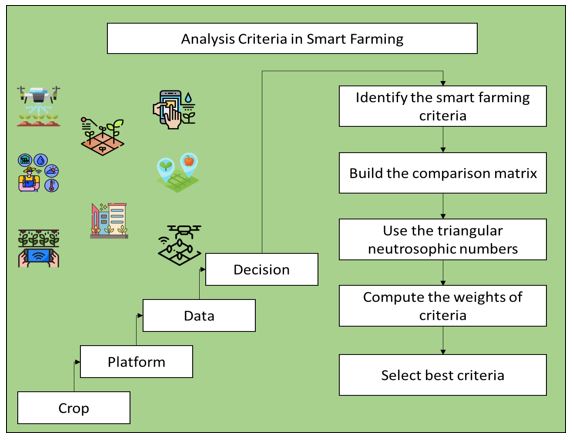Identify the most Productive Crop to Encourage Sustainable Farming Methods in Smart Farming using Neutrosophic Environment
Main Article Content
Abstract
Only with careful management can the data provided by crops be used to make smart, profitable choices. Data has become the central ingredient in contemporary agriculture, and the recent advancements in handling it are contributing greatly to the meteoric rise of smart farming. Gains in efficiency and longevity may be realized to a significant degree by using the objective data collected by sensors. These data-driven farms can maximize output while minimizing waste and environmental impact thanks to the information they collect and analyze. Various criteria and factors in smart farming can aid in productivity. Sensors, drones, Global Positioning System (GPS) mapping, and other technologies are used in "smart farming" to track variables such as crop development, soil quality, and weather to optimize yields. These technologies are used in smart farming to increase sustainability, decrease food waste, and maximize agricultural yields. This paper suggested a mean weighting methodology to analyze and select the best criteria in smart farming. This method is integrated with the neutrosophic set to deal with uncertain data. This paper achieved the sustainability criteria as the best criteria.
Downloads
Article Details

This work is licensed under a Creative Commons Attribution 4.0 International License.





